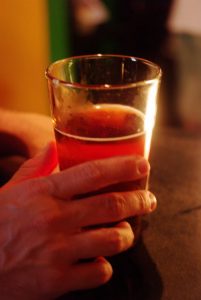Lawmakers in Utah are weighing one of the strictest DUI laws in the country, and legislators in Massachusetts are paying close attention. 
Lawmakers voted to lower the legal limit of a motorist’s blood-alcohol content to 0.05 grams of alcohol per 100 milliliters of blood, down from 0.08 grams, which is the standard for criminal DUI laws across the nation.
Supporters of this more stringent threshold say it’s going to save lives because it will compel more people to stay off the road if they’ve been drinking – even a little. However, those who oppose the measure say it’s going to hurt tourism. Utah is already seen as a rather unfriendly place for those who choose to imbibe, they said, and this would further that assumptions. Further, they argued, the law isn’t likely to help drive down DUI injuries and deaths. Even the 0.08 BAC standard doesn’t stop people from getting behind the wheel drunk.
Under this measure, a man who was 150-pound man would be considered impaired after two beers. Meanwhile, a 120-pound woman would be considered impaired after just one drink. Those figures are according to the American Beverage Institute, which is a trade group that is against the bill. Still, these figures are only estimates because there are a number of factors that can impact the measure of someone’s blood-alcohol concentration. These may include:
- How much food is in a person’s stomach;
- What is the alcohol content of the drink;
- A person’s individual body chemistry.
A representative of ABI told the Associated Press the law wasn’t going to do much to affect drunk driving accidents in the state because the majority of traffic deaths caused by alcohol involve drivers who have a blood-alcohol concentration of 0.15 or higher – nearly double the current 0.08 standard. So if the 0.08 standard isn’t effective, lowering it won’t make much difference either. The ABI representative called the legislative action a “missed opportunity” to target those hard-core drinkers, as opposed to criminalizing the actions of behavior that is responsible.
Indeed, it is not illegal to drink and then get behind the wheel. What is illegal is to be “impaired” behind the wheel.
From an injury lawyer’s standpoint, it may not make a huge difference one way or the other because the question is not necessarily whether the at-fault driver committed a crime (though that can be presented as evidence in the case), but rather whether the driver was negligent. All drivers who use the road owe a duty of care to other motorists. Driving drunk is one way they can fail in that duty. Another is simply by failing to use reasonable caution. That can mean blowing through a stop sign, failing to yield, running a red light, weaving in and out of traffic (failure to maintain lane), failing to signal a lane change or following too closely. None of these require a finding of intoxication in order to prove fault in a civil case.
But of course, our injury attorneys in Boston are going to be closely watching the developments in Utah. If the governor signs the measure, as he is largely expected to do, it would become effective December 30, 2018 – just in time for New Year’s Eve celebrations. Whether the measure will have a long-term effect on lowering drunk driving crashes remains to be seen, and will be a development closely watched.
If you or someone you love has been injured a Boston drunk driving accident, call for a free and confidential appointment at (617) 777-7777.
Additional Resources:
Lawmakers pass toughest DUI limit in United States, March 9, 2017, Associated Press
More Blog Entries:
Massachusetts Drugged Driving a Serious Problem, Police Say, March 28, 2017, DUI Injury Lawyer Blog
 Boston Drunk Driving Accident Lawyer Blog
Boston Drunk Driving Accident Lawyer Blog

